|
Christian accompaniment is best understood through the Gospel story of the Road to Emmaus. If Emmaus is Heaven, each of us is on our own journey: afraid, confused, and attempting to make sense of the joy of the Resurrection. Each of us needs someone to walk beside, someone who will minister to us by simply listening, then understanding, and advising. On this journey, our earthly traveling companion is on one side and Jesus is on the other. The disciples couldn’t have come to understand the Paschal Mystery or their relationship with it until they let Christ be their guide.
As a precursor to the 2018 Synod, the Synod of Bishops released their working document, or Instrumentum Laboris, on Young People, the Faith, and Vocational Discernment. In its second part, the document discusses the necessity for vocational accompaniment, defined as “a process that is able to unleash freedom, as well as the capacity to give and to integrate the various dimensions of life within a horizon of meaning.” Though a rather lofty definition, it is clear that accompaniment centers around a proper understanding of discernment. Discernment can be a confusing Catholic buzzword. For some, the mere thought of it causes extreme panic, while others understand it as equivalent to “religious life.” I can’t count the number of conversations I’ve had where someone leans over to me and asks in a hushed tone, “Are you discerning?” to which I respond bluntly, “EVERYONE is discerning!” Every young person is constantly discerning not only our capitol “V” Vocation (such as a call to religious life, the priesthood, or to marriage), but also our vocation for every year, month, or moment of our lives. Each day is an opportunity to ask to know God’s will. Even a small daily prayer invites Him to let the Spirit work in our lives. With this definition of discernment in mind, accompaniment is the simple act of being present to someone, forming a relationship in order to walk with him or her towards an understanding of Christ’s will. The Synod’s Instrumentum Laboris says that there are many kinds of accompaniment. Whether it be formal spiritual direction, psychological accompaniment, advisement from a trusted elder, etc., accompaniment is necessary for the spiritual journey. We cannot live out our faith alone. We need others to share with, to learn from, and to pray with in order to grow as children of God. In my own journey, I have been blessed to be accompanied by many different disciples. My parents were the first to show me what it means to be accompanied in and through love. In high school, a few wonderful teachers gave me room to grow and begin to understand how Christ was speaking in my life. In college, I learned how to open myself to totally new companions and walk with college-aged ministers. In the most traditional sense, an excellent diocesan priest and longtime friend welcomed me in spiritual direction last year and together we learn how God is calling me to serve Him as I grow as a person and daughter. I know accompaniment is important because when I try to walk the road alone, I am met with a sense of isolation and confusion. When I made the decision to study abroad in Rome for the semester, I never realized the sort of impact it would have on my spiritual life. Leaving my closest companions, faith friends, and spiritual director behind in the United States, I felt unable to cope with the new challenges I’m facing. I’ve come to realize that without those spiritual relationships, the journey towards Christ becomes far more difficult. To accompany and to be accompanied are not positions to be taken lightly, and hopefully this Synod will show the Church how to better foster these sorts of relationships. In a time where many of us are feeling betrayed or isolated by the Church, it is difficult to trust that She is the source of these types of reliable and authentic relationships. As young people, however, we have to trust in the healing mercy of the Holy Spirit and the grace bestowed upon our Church’s shepherds. It is not an easy time to be a Catholic or a young person, but that is all the more reason for us to persevere on the journey with a companion on one side and Christ on the other.
0 Comments
“The word of God nourishes both evangelizers and those who are being evangelized so that each one may continue to grow in his or her Christian life” – National Directory of Catechesis Over the last 40 years, the United States Conference of Catholic Bishops (USCCB) has especially recognized the importance of catechists in the process of evangelization by reserving the third Sunday in September as “Catechetical Sunday.” Catechetical Sunday commemorates and celebrates the ministry of formal catechesis, which is the systematic teaching of the tenets of the Catholic faith in order to help others know more about God and his Church. This ministry has had a significant role in my life over the past four years and across two different dioceses. There is something amazing about trying to explain the Old Testament prophets to a group of 6th grade students, a majority of whom has never heard the likes of Jeremiah, Isaiah, Elijah, etc. I love seeing the excited faces of students that either know or are interested in the subject of my teaching, while the blank ones challenge me to find compelling ways to make the faith a living part of their lives. On Catechetical Sunday, parishes, including where I have served, have a particular ritual: before the recessional at the end of Mass, the celebrant asks all who are called to serve as catechists to stand and receive a blessing for their work throughout the year. This serves two purposes: it helps the catechist understand the importance of their teaching role in the parish and also serves as a moment of reflection for the rest of the congregation. The influence of a catechist on a young life cannot be understated. Below are a few tips I’ve learned throughout my time as a catechist that can help those interested in pursuing the ministry of catechetical formation.
Catechetical Sunday reminds us of our individual roles in the evangelization of the baptized. In our small way, my fellow catechists and I—men and women from all walks of life and individual faith journeys—try to sow the fruits of faith for the next generation of disciples. Pulling from my toolkit, I will leave you with a blessing for catechists: “Lord God, source of all wisdom and knowledge, you sent your Son, Jesus Christ, to live among us and to proclaim his message of faith, hope, and love to all nations. In your goodness bless our brothers and sisters who have offered themselves as catechists for your Church. Strengthen them with your gifts, that they may teach by word and by example the truth that comes from you.”
“The word of God nourishes both evangelizers and those who are being evangelized so that each one may continue to grow in his or her Christian life” – National Directory of Catechesis Over the last 40 years, the United States Conference of Catholic Bishops (USCCB) has especially recognized the importance of catechists in the process of evangelization by reserving the third Sunday in September as “Catechetical Sunday.” Catechetical Sunday commemorates and celebrates the ministry of formal catechesis, which is the systematic teaching of the tenets of the Catholic faith in order to help others know more about God and his Church. This ministry has had a significant role in my life over the past four years and across two different dioceses. There is something amazing about trying to explain the Old Testament prophets to a group of 6th grade students, a majority of whom has never heard the likes of Jeremiah, Isaiah, Elijah, etc. I love seeing the excited faces of students that either know or are interested in the subject of my teaching, while the blank ones challenge me to find compelling ways to make the faith a living part of their lives. On Catechetical Sunday, parishes, including where I have served, have a particular ritual: before the recessional at the end of Mass, the celebrant asks all who are called to serve as catechists to stand and receive a blessing for their work throughout the year. This serves two purposes: it helps the catechist understand the importance of their teaching role in the parish and also serves as a moment of reflection for the rest of the congregation. The influence of a catechist on a young life cannot be understated. Below are a few tips I’ve learned throughout my time as a catechist that can help those interested in pursuing the ministry of catechetical formation.
Catechetical Sunday reminds us of our individual roles in the evangelization of the baptized. In our small way, my fellow catechists and I—men and women from all walks of life and individual faith journeys—try to sow the fruits of faith for the next generation of disciples. Pulling from my toolkit, I will leave you with a blessing for catechists: “Lord God, source of all wisdom and knowledge, you sent your Son, Jesus Christ, to live among us and to proclaim his message of faith, hope, and love to all nations. In your goodness bless our brothers and sisters who have offered themselves as catechists for your Church. Strengthen them with your gifts, that they may teach by word and by example the truth that comes from you.”
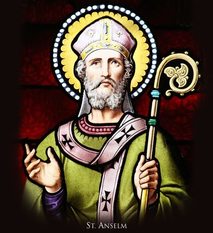 “Faith Seeking Understanding” is the motto of St. Anselm of Canterbury, whose feast we celebrate today, is a reminder to all Christians to seek God not only with our hearts but with our minds as well. St. Anselm, a Benedictine monk who lived during the 11th century, was known throughout Europe for his mind. He was a great scholar and strategist, having often put his wits against those of the English monarchy to try and preserve his own life and the life of the Church in England. However, his exercise of intellect during his life is not the “understanding” that his motto would prompt us to seek, nor that which lead him to be canonized a Saint. Rather it is the knowledge which Pope Francis spoke of in his general audience on May 21, 2014 “When we speak of knowledge, we immediately think of man’s capacity to learn more and more about the reality that surrounds him and to discover the laws that regulate nature and the universe. The knowledge that comes from the Holy Spirit, however, is not limited to human knowledge; it is a special gift, which leads us to grasp, through creation, the greatness and love of God…” This kind of knowledge, the knowledge of God, is far more precious than any other. How then do we obtain this most precious knowledge? St. Anselm would probably quote the words the founder of his order, St. Benedict, by saying “ora et labora” (pray and work). Indeed prayer and work, focused on God, will help lead someone to better understand God. Pope Francis, in that same audience on May 21st, gives us a possible focus for that prayer and work: creation. The Holy Father noted that although God gave the gift of His creation to man, that does not make mankind the “masters of creation.” The Holy Father continued by saying that “creation is not some possession that we can lord over for our own pleasure; nor, even less, is it the property of only some people, the few: creation is a gift…” All around us, especially as new life comes forth during this spring season, we can see God’s creation in its majesty. We must work then to care for it but also reflect and pray upon it. We must always seek to understand God so as to better conform our own lives to His will. Faith is a gift, and having faith is not the end of a journey but the start of a new one. St. Anselm teaches us that we must use our faith to seek understanding of the world around us and of the God who created us! Patrick Burke is a staff member at The Catholic University of America in Washington, D.C.
In my community, I am a member of a young Catholic adult group where there are weekly women and men small groups. During one women’s small group we discussed discernment for everyday actions and decisions. One of the members mentioned Saint Ignatius’ book, The Discernment of Spirits, as interpreted by Timothy M. Gallagher, O.M.V. and how the book helps her differentiate between God’s plan for her and her own wishes and temptations in everyday life. I hadn’t heard of this book before and decided to read the “Ignatian Guide for Everyday Living.”
While recuperating from a leg wound from the battle against the French in Pamplona, Ignatius asked for reading materials, of which he was given religious texts. Gallagher states, “While Ignatius ceases reflecting on the worldly project he finds himself ‘dry and discontented.’ Yet after he has considered the project of imitating the saints, the delight remains. He continues enduringly to be “content and happy.” Ignatius begins to become aware of the differences between bad spirits and the spirit of God. Ignatius then follows the process of becoming aware, understanding and taking action in order to discern what he must do. Becoming aware means taking notice of what is happening in our inner spiritual thoughts. Gallagher is completely right when he says that, “the goods of the senses are more visible, more tangible, and more readily apparent to us than those of the mind and of the spiritual order… it is no easy task to untangle and identify the innumerable threads in the tapestry of our daily affective and reflective life.” Henry David Thoreau described how fast-paced we live our lives when he said in Walden, “It lives too fast.” The discernment of spirits requires us to focus on spiritual awareness, and not psychological or moral awareness. As our world becomes increasingly filled with technology and having the need to fill every moment with activity, we can easily lose quiet and reflection time required of us to discern what God is calling us to do. Understanding is the reflection we take on the stirrings we have now noticed that allows us to see what is of God and what is not. In Ignatius’ experience, he notices the differences between the thoughts that leave him happy and those that leave him dry. He reflects upon these and eventually comes to recognize why a thought is of God and the other not. As for our own lives, Gallagher says to ponder if these thoughts affect our lives of faith, hope and love and if they allow us to follow God’s will. If so, than these are of God. Taking action refers to accepting to live according to what we’ve noticed is of God and rejecting what is not of God. As if the first two steps of becoming aware and understanding God’s call to us aren’t difficult enough, rejecting or accepting a spiritual action requires us to make a decision in following God’s call. In Ignatius’ case, he accepts God’s project: he travels to Manresa to begin a life in imitation of the saints, and makes a pilgrimage to Jerusalem. There are a total of 14 rules Saint Ignatius describes in his text. Ignatius indicates that these rules are for the person who strives to overcome sin and who is simultaneously growing in the service of the Lord – a dedicated and progressing Christian. As I continue on the journey of reading and reflecting on the discernment of spirits, I will happily share what I’m learning. Next up – a deeper dive into understanding the 14 rules! Dana Edwards is a recent graduate of the University of Florida. She currently resides in Tallahassee, Florida where she works as a Digital Strategist, and volunteers as a lector and with communication outreach at her local parish, Good Shepherd Catholic Church. In my kindergarten class, there is one little girl who loves to ask questions about faith. After going to Mass in the chapel last week, she asked me, “Who was the almost naked man on the wall in pain?” I smiled and answered, “Jesus, because he loves you very much.” While contemplating this, a few minutes went by until she had another question. She asked, “Why do they give cookies at church and why didn’t I get one?” These and many other inquiries were made that day, so it struck me: how can we as faithful Catholic adults help young children better understand our traditions, history, and faith? We must understand as children do.
In the Gospel of Matthew, Jesus said, “Let the children come to me, and do not prevent them; for the kingdom of heaven belongs to such as these” (Matthew 19:14). Only with the virtue and openness of a child can one truly have eternal life. Similar to my student who was so curious about the Mass, we as adults of faith must remember to love as children love, and to eagerly ask questions as children ask them. Having a burning desire to love and serve God is something that so many adults yearn for, but so few are able to achieve. Often times, children can be an example to adults of unconditional and innocent love for others. Understanding our faith is difficult at times, and it is often hard to see the good in difficult situations. We get caught up in the stressful details and hardships that come with living our daily lives, and frequently become over-scheduled and sluggish in the practice of our faith. As “grown-ups” we have so many things on our minds, and deepening our understanding of God’s love and mercy is easily forgotten and overlooked. Instead of grumbling about an overdue bill or the laundry list of things to do, stop and think about how lucky we are to have a job or a family that loves us. Children love their parents and caretakers for simple things like good food, a comfortable bed, and new clothes. While we are forgetting that the simplest actions mean the most to children, we also forget that the simplest moments mean the most to God. A quick prayer of gratitude in the morning, for a traffic-less commute or a child’s hug goodbye goes a long way…God notices every grateful moment. Our Holy Father, Pope Francis, believes that education and teaching provides knowledge of beauty, truth, and goodness. Inspiring others with a desire to learn about our faith is crucial in the life of a Catholic–whether you are a teacher, parent, or role model. Children are innocent and believe what they see. When they see parents and teachers serving God and the Church, they desire to imitate them and do the same. We must be like children in order for them to understand the Lord, ask questions, make mistakes, get messy…and always know that God loves us. Krissy Kirby is a Kindergarten teacher for the Archdiocese of Washington D.C. We celebrate Pentecost on June 8th, 50 days after Easter, to commemorate the Holy Spirit’s descent on Christ’s disciples after His Ascension. We are, in many ways, celebrating the birthday [E1] of the Church and our individual commitments to God.
The Holy Spirit empowers us to share our faith, to have the ability to open our hearts in understanding one another and God’s message. Through the gifts of the Holy Spirit (wisdom, understanding, counsel, knowledge, fortitude, piety and fear of the Lord), we become fully alive in our personal relationship with God so we can give better witness to His message. The Catechism of the Catholic Church says, “…the Church is sent to announce, bear witness, make present, and spread the mystery of the communion of the Holy Trinity” (CCC 738). We can use Pentecost as an opportunity to make our faith our own while sharing God’s word. By utilizing our individual talents and volunteering in some aspect of our church, we strengthen our faith and build community. I remember wanting to be an altar server after receiving my first Holy Communion in second grade. I began altar serving and continued to do so until I received Confirmation. Serving during the Mass allowed me, as a young girl, to better understand my Catholic faith. My parents remember me saying how I enjoyed altar serving because I had to pay attention (and stay awake) during 8 a.m. Sunday Mass. Assisting the priest on the altar, I began to fully understand and celebrate the Liturgy of the Word and Liturgy of the Eucharist every Sunday. I attended Catholic school and was able to make connections between Religion class and weekly Mass by serving during church service. Once confirmed, I continued to volunteer in my church as a lector as well as taught religion education to grade school children. Actively participating in my church allowed me to fully engage in my Catholic faith and grow spiritually. No matter our age, the Catholic Church encourages us to be active participants in Mass and in our Church. Through the work of the Holy Spirit, we can come to discover where the Church needs us and how we can best share the time, talent, and treasure God has given us. My parish hosts a ministry fair each year, which gives parishioners an opportunity to see other ministries within the Church and where we can best serve God and our community. Pentecost allows us to renew ourselves to the Holy Spirit. Pope Francis asks us in his daily Mass homily on May 19th this year to question ourselves: “What kind of heart do we have? … Is my heart fixed upon everyday gods or is it a heart fixed on the Holy Spirit?” It is easy for us to get wrapped up in life’s habitual tasks at home, work, with family, colleagues, etc. Pope Francis encourages us that the Holy Spirit “gives us strength, gives us the steadiness to be able to move forward in life in the midst of many events.” Dana Edwards is a recent graduate of the University of Florida. She currently resides in Tallahassee, Florida where she volunteers as a lector and with communication outreach at her local parish, Good Shepherd Catholic Church. There’s a line from Coldplay’s “The Scientist” that pops in my head from time to time. Nothing seems to prompt it. The line just comes: “Questions of science, science and progress, do not speak as loud as my heart.”
As I sit with the words now, I notice why they speak to me. A lover of math and physics, questions of science have engaged me from the very beginning. At first it was dinosaurs, fossils, rocks, mountains, stars, planets – big, physical, earthy things. As I grew and learned through the complicated processes of science, the whole world became an infinitely complicated, continuously unfolding window into God’s creative mind. From the quantum entanglement of paired photon particles to the unimaginably long process of creation through evolution that could selectively form the creatures of this mysterious and complicated world, I stand in complete, utter fascination. Yet, as captivated as I am by science, its questions are not enough. For me, asking the probing questions of science isn’t about head knowledge, it’s about heart knowledge. The created world and all its mysteries, when uncovered and understood, stir in me deeper mysteries, mysteries of a different category and question. At some point I moved beyond asking what and how to asking why and what does it mean. As we celebrated Pentecost, the receiving of the Holy Spirit, I was reminded that the gifts we have been given are of both head knowledge and heart knowledge. Wisdom, understanding, knowledge, counsel, strength, piety, and fear of the Lord – these challenge and equip us to probe deeper, scientifically and metaphysically, into the mystery of being. Of all the gifts, fear of the Lord might sound the most antiquated, but it may also be the most relevant for today’s ongoing conversation with secularism. Understood as “wonder and awe”, rather than fear, this gift certainly explains my shift in focus from science to faith. And, I’m certain, explains the drive of so much scientific research today. Wonder is the starting point for two difficult conversations – one between science and fundamentalism and the second between faith and active secularism. Both the agnostic physicist and the pious mystic share the gift of a profound wonder and awe at the created world, whether or not they both believe the world had a creator. As we celebrate the gift of Pentecost, and as we give thanks for the Holy Spirit’s continued work, let us take time to wonder with someone about the intricacies of creation – whether it be through the eyes of science or the eyes of faith – and let us hope that this gift of wonder can begin a creative conversation of a different sort. Mark Bartholet is the Pastoral Associate for Faith Formation at St. Peter Catholic Church in Charlotte, NC. |
Details
Archives
July 2024
Categories
All
|
About |
Media |
© COPYRIGHT 2024 | ALL RIGHTS RESERVED


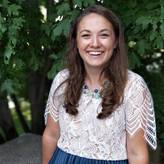
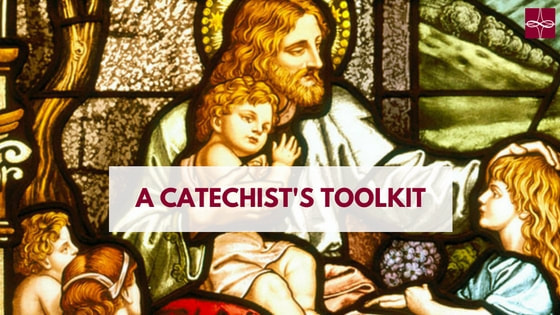
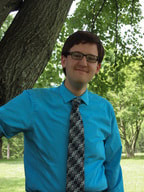
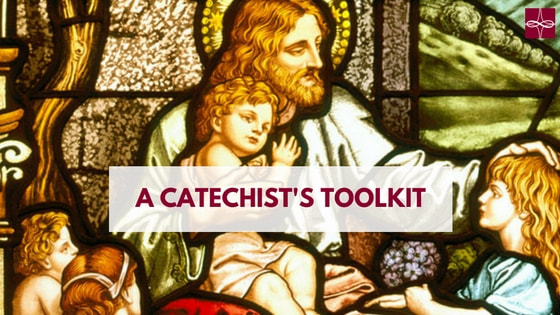
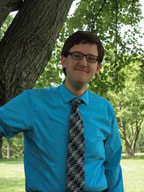
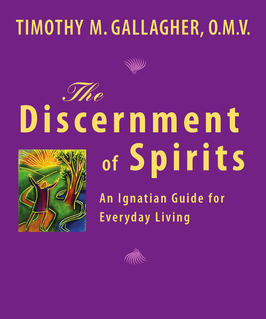
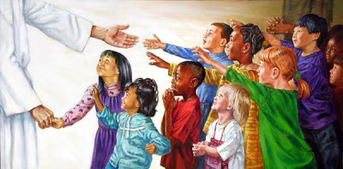
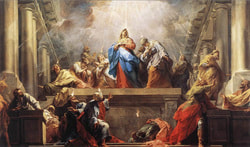
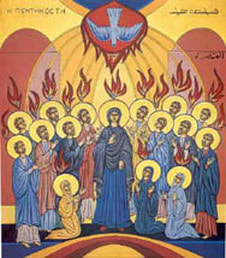
 RSS Feed
RSS Feed